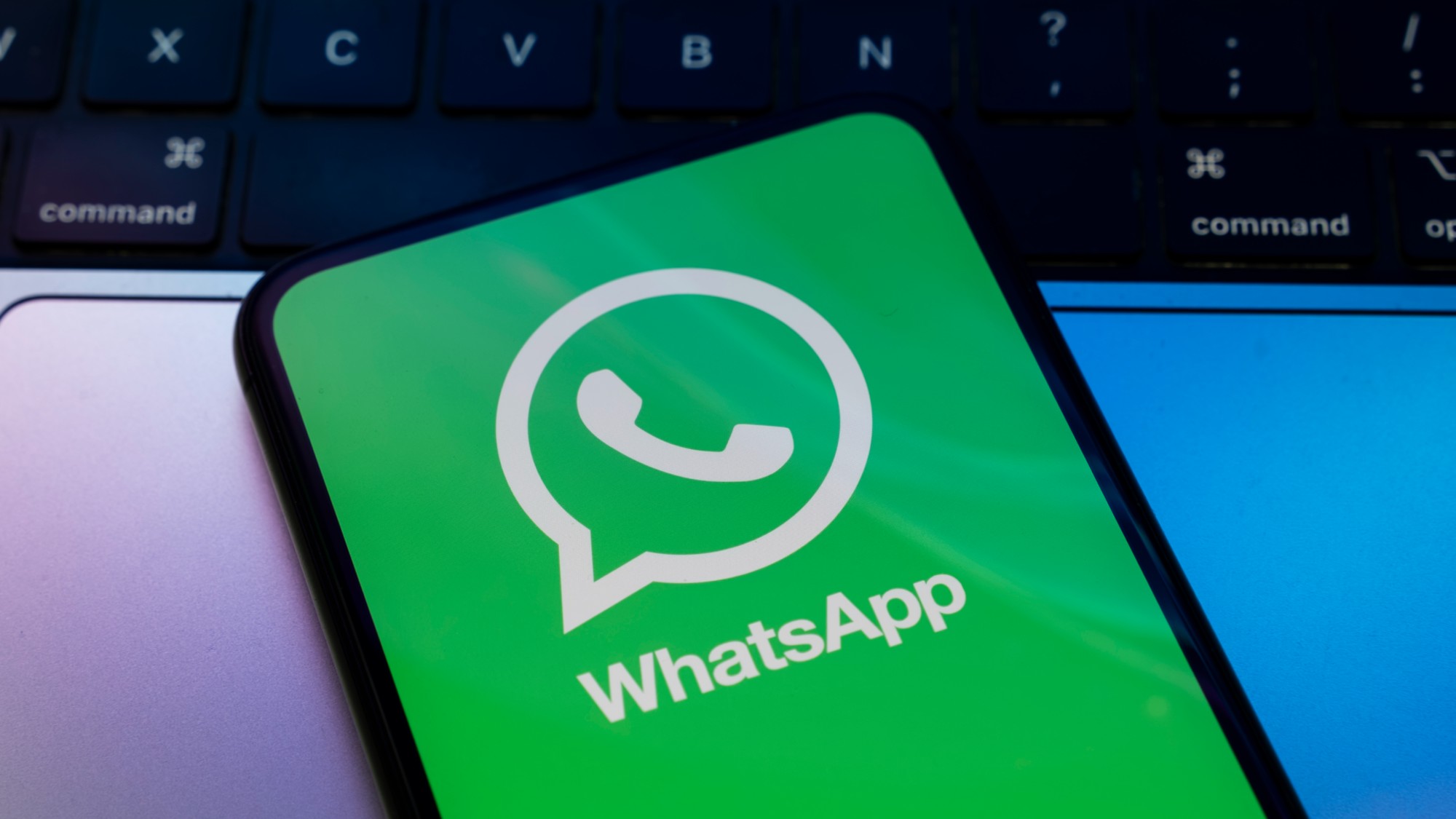How will honeytrap scandal change Westminster?
Security procedures laid bare by spear phishing attack as focus shifts to 'political insider' being responsible

A free daily email with the biggest news stories of the day – and the best features from TheWeek.com
You are now subscribed
Your newsletter sign-up was successful
Westminster continues to reel from the so-called honeytrap scandal amid speculation about whether it was the work of a hostile foreign state or a political insider.
Tory MP William Wragg went public last week to confirm he had been blackmailed into giving out numbers of colleagues after sending explicit pictures to someone called "Charlie" on the dating app Grindr. Wragg stood down last night from his roles as head of the Commons' Public Administration and Constitutional Affairs Committee and vice-chair of the 1922 Committee of Tory backbenchers.
At least 15 people – all of them male – are now believed to have been targeted by the "spear phishing" account, including journalists, researchers and MPs from across the political spectrum.
The Week
Escape your echo chamber. Get the facts behind the news, plus analysis from multiple perspectives.

Sign up for The Week's Free Newsletters
From our morning news briefing to a weekly Good News Newsletter, get the best of The Week delivered directly to your inbox.
From our morning news briefing to a weekly Good News Newsletter, get the best of The Week delivered directly to your inbox.
Calling Wragg's actions "exceptionally inappropriate and ill-advised", cabinet minister Mel Stride told GB News that "the overarching lesson for all of us in public life here is to proceed with great caution in the circumstances".
What did the commentators say?
While some senior politicians – most notably Chancellor Jeremy Hunt – have backed Wragg, others have been less forgiving. "To give out the telephone numbers of other MPs is not only a serious breach of trust towards his colleagues, it also raises some quite serious security questions, too" said Nigel Farage in The Telegraph. "What he did was unforgivable in every way."
The "embarrassment of a few Westminster insiders" "provides endless opportunities for tabloid amusement", said The Observer in its editorial. But there is "a more serious problem: the way the pathological addiction to WhatsApp of Britain's ruling elite has undermined democratic institutions and conventions".
The Covid crisis had already exposed Westminster's over-reliance on private messaging apps that "might suit gossip and informal exchanges but is inappropriate for important decision-making", said David Omand, a former head of GCHQ and one-time permanent secretary at the Home Office.
A free daily email with the biggest news stories of the day – and the best features from TheWeek.com
If the pandemic raised questions about transparency and accountability then the honeytrap scandal has shone a light on security procedures within the Westminster bubble in the era of instant communications.
The popularity of direct messaging and social networks makes targeted attacks "easier to carry out," said Politico, "with malign actors able to create virtual numbers and buy cheap SIM cards on the high street".
What next?
The nature of this scandal and the fact that it involves the Conservatives, Labour and the Liberal Democrats mean it is "unlikely to become a party-political issue", said James Heale in The Spectator.
The long-term consequences for the intimate circle of MPs and journalists are likely to depend on who is identified as being behind the blackmailing operation. There is "considerable debate" in Westminster as to whether a hostile state actor was involved, said Heale. The scandal has "alarmed security hawks" within the Conservative Party, "who believe state-sponsored cyberattacks are on the rise", said Politico.
However, said The Sun's political editor Harry Cole on X, "it continues to be stressed this is a police matter not one for the security services".
The so-called Westminster honeytrapper is believed to have been at the Labour Party conference in Liverpool last year, said The Times, "fuelling speculation that the perpetrator is a political insider".
Dominik Wojtczak, head of the Cybersecurity Institute at the University of Liverpool, told Politico that the messages were probably part of a "spear phishing attack" and that "the purpose is most likely to simply obtain indecent images of the victims and then blackmail them".
But this misses the point entirely, said Farage. "It is totally irrelevant whether 'Charlie' or any other dark actors linked to the Wragg scandal are working for the Russians, the Chinese, or a scurrilous website," he wrote. "Those who are in public office have to be held to a higher standard than everybody else. If not, breakdown will follow."
Calling for an investigation to "help to establish whether there are any other Wraggs in Parliament who have been similarly compromised", Farage said: "We ought to think about the security implications of MPs giving out to blackmailers confidential telephone numbers."
The former Ukip leader concluded: "The security of the nation and the safety of the public could depend on it."
-
 The Olympic timekeepers keeping the Games on track
The Olympic timekeepers keeping the Games on trackUnder the Radar Swiss watchmaking giant Omega has been at the finish line of every Olympic Games for nearly 100 years
-
 Will increasing tensions with Iran boil over into war?
Will increasing tensions with Iran boil over into war?Today’s Big Question President Donald Trump has recently been threatening the country
-
 Corruption: The spy sheikh and the president
Corruption: The spy sheikh and the presidentFeature Trump is at the center of another scandal
-
 ‘The censorious effect is the same, even if deployed covertly’
‘The censorious effect is the same, even if deployed covertly’Instant Opinion Opinion, comment and editorials of the day
-
 The Mandelson files: Labour Svengali’s parting gift to Starmer
The Mandelson files: Labour Svengali’s parting gift to StarmerThe Explainer Texts and emails about Mandelson’s appointment as US ambassador could fuel biggest political scandal ‘for a generation’
-
 ‘Dark woke’: what it means and how it might help Democrats
‘Dark woke’: what it means and how it might help DemocratsThe Explainer Some Democrats are embracing crasser rhetoric, respectability be damned
-
 ‘The economics of WhatsApp have been mysterious for years’
‘The economics of WhatsApp have been mysterious for years’Instant Opinion Opinion, comment and editorials of the day
-
 Three consequences from the Jenrick defection
Three consequences from the Jenrick defectionThe Explainer Both Kemi Badenoch and Nigel Farage may claim victory, but Jenrick’s move has ‘all-but ended the chances of any deal to unite the British right’
-
 The MAGA civil war takes center stage at the Turning Point USA conference
The MAGA civil war takes center stage at the Turning Point USA conferenceIN THE SPOTLIGHT ‘Americafest 2025’ was a who’s who of right-wing heavyweights eager to settle scores and lay claim to the future of MAGA
-
 Nigel Farage’s £9mn windfall: will it smooth his path to power?
Nigel Farage’s £9mn windfall: will it smooth his path to power?In Depth The record donation has come amidst rumours of collaboration with the Conservatives and allegations of racism in Farage's school days
-
 Is a Reform-Tory pact becoming more likely?
Is a Reform-Tory pact becoming more likely?Today’s Big Question Nigel Farage’s party is ahead in the polls but still falls well short of a Commons majority, while Conservatives are still losing MPs to Reform